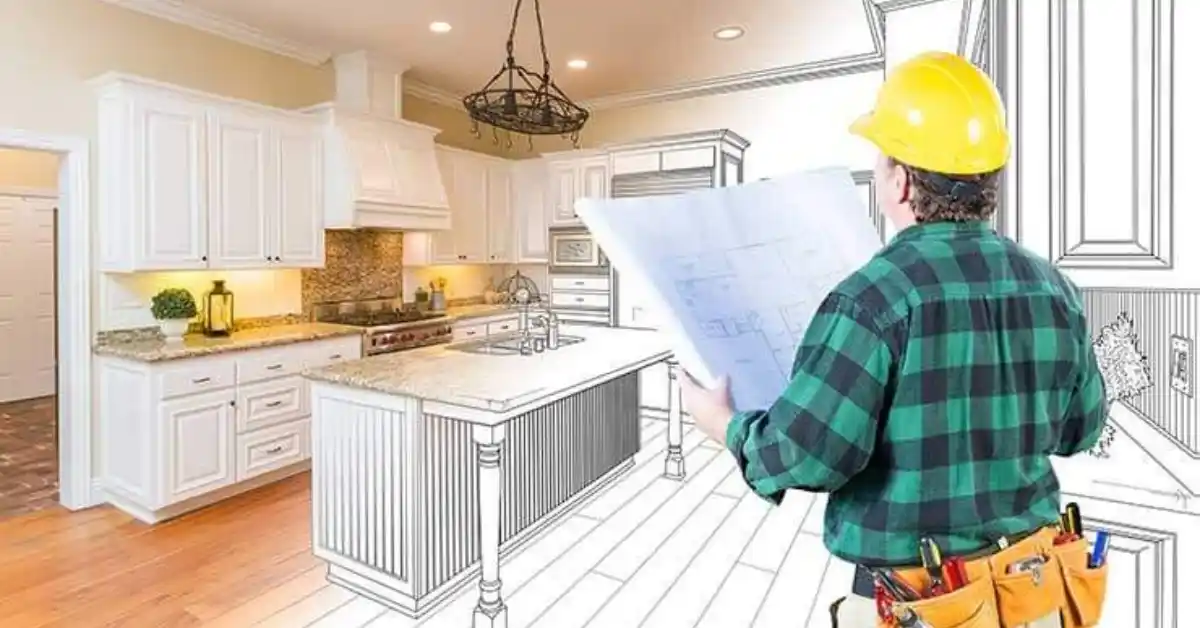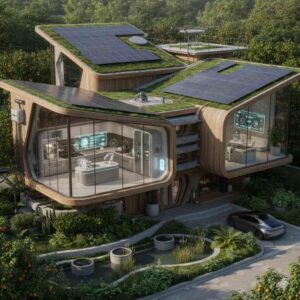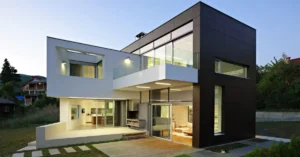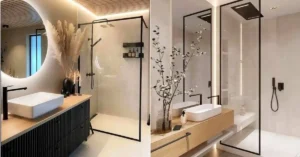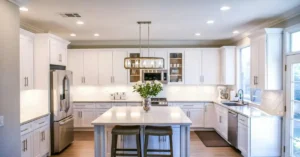What Is Home Improvement?
Home improvement refers to renovating, upgrading, or repairing your home to improve its comfort, value, and efficiency. Projects range from small DIY fixes to large-scale remodeling, such as roof replacements, kitchen upgrades, and smart home integrations.
Why Home Improvement Matters in 2025
In 2025, home improvement is more than just aesthetics, it’s about increasing property value, lowering utility costs, and adapting homes for modern living. With rising construction costs and higher mortgage rates, many homeowners are choosing to remodel instead of moving.
According to the Joint Center for Housing Studies at Harvard, Americans spend over $500 billion annually on home improvement projects, and this figure is projected to keep climbing in 2025.
Top Home Improvement Trends in 2025
1. Energy-Efficient Upgrades
- Solar panels, smart thermostats, and energy-efficient windows.
- Federal and state tax credits make upgrades more affordable.
2. Aging-in-Place Remodeling
- Wider doorways, walk-in tubs, and smart security.
- Growing demand as baby boomers retire.
3. Outdoor Living Enhancements
- Decks, patios, and outdoor kitchens.
- Increased interest due to work-from-home lifestyles.
4. Smart Home Technology
- Voice-activated devices, smart lighting, and AI-driven energy systems.
- Boosts convenience and resale value.
5. Kitchen & Bathroom Remodels
- Still the most popular and valuable remodels in terms of ROI.
- Average ROI: 55–75% depending on project scope.
Average Cost of Home Improvement Projects in 2025
| Project Type | Average Cost (2025) | ROI Estimate |
| Roof Replacement | $10,000 – $25,000 | 60–70% |
| Kitchen Remodeling | $15,000 – $65,000 | 55–75% |
| Bathroom Remodeling | $8,000 – $25,000 | 60–70% |
| Window Replacement | $7,500 – $20,000 | 65–75% |
| Solar Installation | $12,000 – $30,000 | 70–90% |
| Smart Security System | $500 – $3,500 | 80–90% |
💡 Quick Answer (AEO): The average U.S. homeowner spends between $10,000–$30,000 annually on home improvement projects in 2025.
Financing Home Improvement in 2025
Home Equity Loans
- Fixed rates, predictable payments.
- Best for large projects like roof replacement or kitchen remodels.
HELOC (Home Equity Line of Credit)
- Flexible borrowing.
- Works well for ongoing or phased projects.
Personal Loans
- Faster approval, unsecured.
- Higher interest rates compared to home equity options.
Government Incentives
- Energy-efficient tax credits for solar, HVAC, and insulation upgrades.
- Some states offer rebates for window and door replacements.
Choosing the Right Contractor in 2025
- Check Licenses & Insurance – Protects you legally and financially.
- Get 3+ Quotes – Compare prices and services.
- Read Reviews & Ratings – Use sources like BBB, Angi, and Google.
- Ask for References – Talk to past clients about quality and timelines.
- Get a Written Contract – Avoid verbal agreements.
DIY vs. Hiring Professionals
When DIY Makes Sense
- Painting, landscaping, small repairs.
- Saves money but requires time and skill.
When to Hire Pros
- Roofing, electrical, plumbing, and major structural work.
- Ensures safety, permits, and quality results.
Regional Cost Differences in 2025
- West Coast: Higher labor/material costs (e.g., California roof replacement averages $18,000).
- Midwest: Lower costs, but fewer rebates for energy-efficient upgrades.
- South: High demand for hurricane-resistant roofs and windows.
- Northeast: Older housing stock drives more remodeling demand.
How Home Improvement Boosts Property Value
- A minor kitchen remodel adds an average of $15,000 to resale value.
- New roofing increases buyer appeal and speeds up sales.
- Energy upgrades cut utility bills, appealing to eco-conscious buyers.
💡 Pro Tip: Homes with smart security systems sell up to 5% faster in competitive markets.
Conclusion
Home improvement in 2025 is a smart investment in both comfort and property value. From cost-saving energy upgrades to ROI-driven kitchen remodels, homeowners have more financing options, contractor resources, and technology than ever. Whether you’re planning a small DIY project or a full remodel, strategic upgrades will continue to pay off well into the future.

